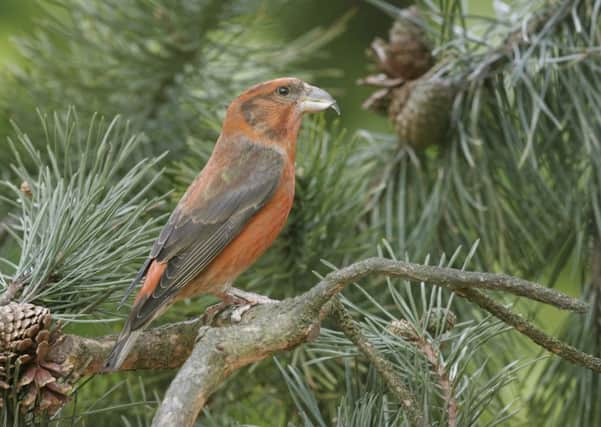Rare breeding birds in Scotland vulnerable due to climate change


Species such as dotterel, whimbrel, common scoter and Slavonian grebe are all said to be in danger, based on projections around the impact of global warming.
The Scottish crossbill, which is found only in Scotland, is at risk of becoming extinct all together, experts fear.
Advertisement
Hide AdAdvertisement
Hide AdBy contrast, however, some other birds were found to have thrived in the warmer, wetter climate, which has enabled them to expand their range further north.
The study is produced by the RSPB, the British Trust for Ornithology (BTO) and the Wildfowl and Wetlands Trust (WWT), along with various statutory nature conservation bodies.
It found climate change is already affecting bird life in the four countries of the UK, which is responding to a 1C (1.8F) increase in average summer temperatures since the 1980s.
“Birds in the UK are showing changes in abundance and distribution, predominantly moving northwards, in a way that is consistent with a changing climate,” the report said.
“Migratory birds are arriving earlier and egg-laying dates have advanced such that swallows, for example, are arriving in the UK 15 days earlier, and breeding 11 days earlier, than they did in the 1960s.”
For species such as the dotterel, whimbrel, common scoter and snow bunting - whose UK breeding populations are found almost entirely in Scotland - population declines are said to have been considerable already.
Breeding success of the Slavonian grebe has also been affected, with Scotland on average 11 per cent wetter between 2007-2016 than it was in 1961-1990.
The report went on: “The UK’s kittiwake population has declined by 70 per cent since 1986 because of falling breeding success and adult survival.
Advertisement
Hide AdAdvertisement
Hide Ad“Climate change has reduced the availability of the sandeels they rely upon in the breeding season.
“Other species that feed largely on sandeels, such as Arctic skua, Arctic tern and puffin, are at high risk of climate-related decline.”
On a more positive note, the report found that warmer temperatures during the breeding season have had a positive effect on breeding success for a range of species.
Birds that feed insects to their young, such as great tits and chaffinches, have improved their productivity in warm, dry springs, while nuthatch, goldfinch and chiffchaff have been expanding their range into Scotland.